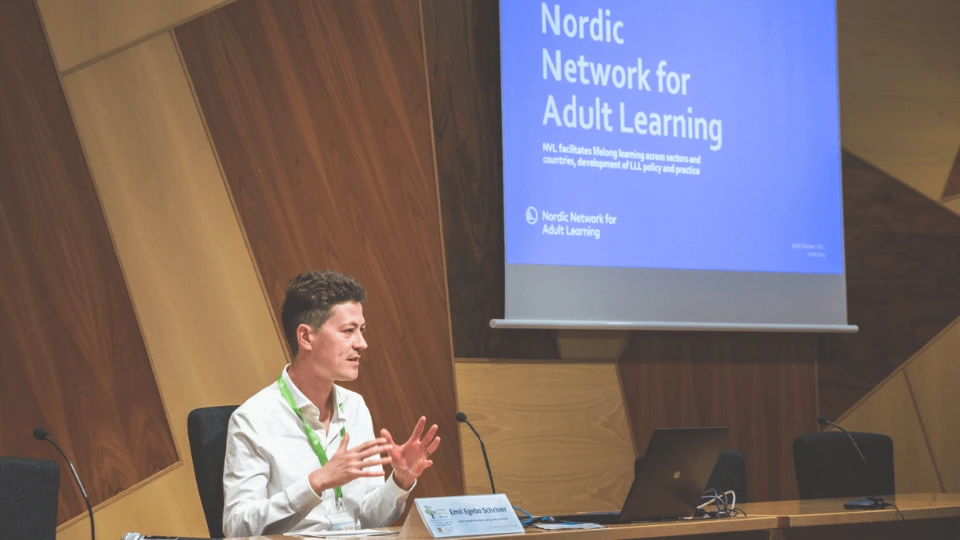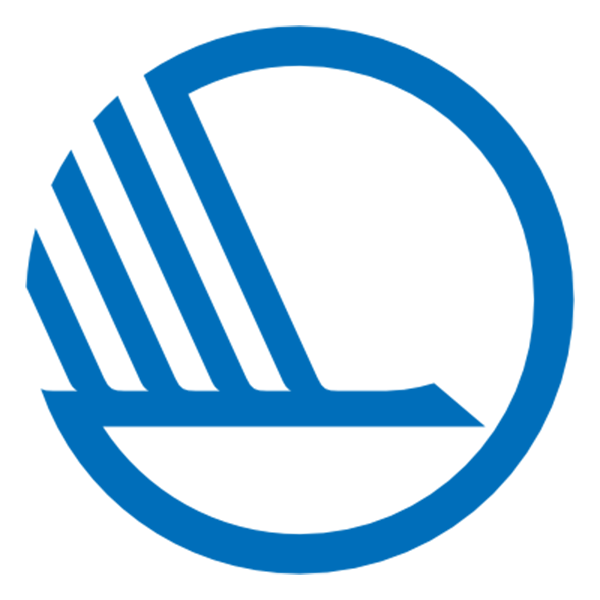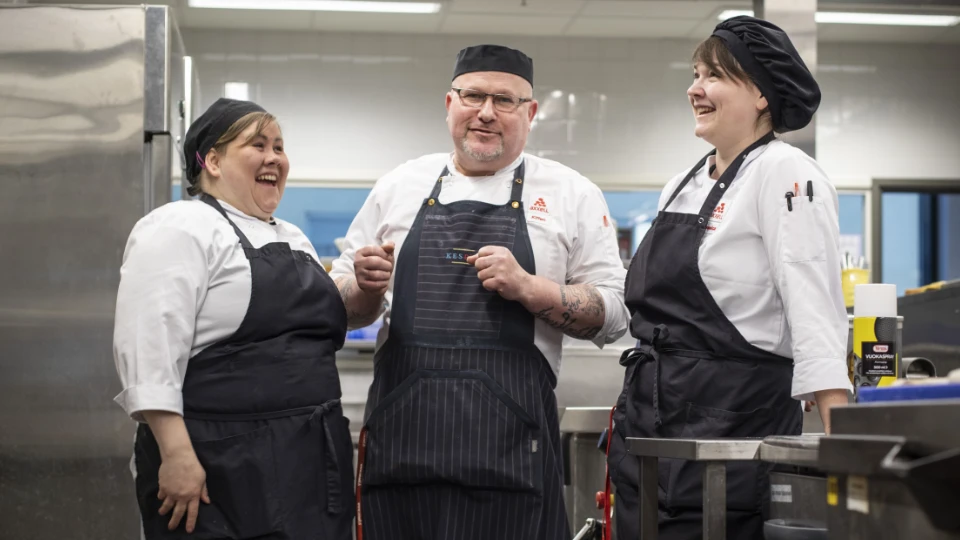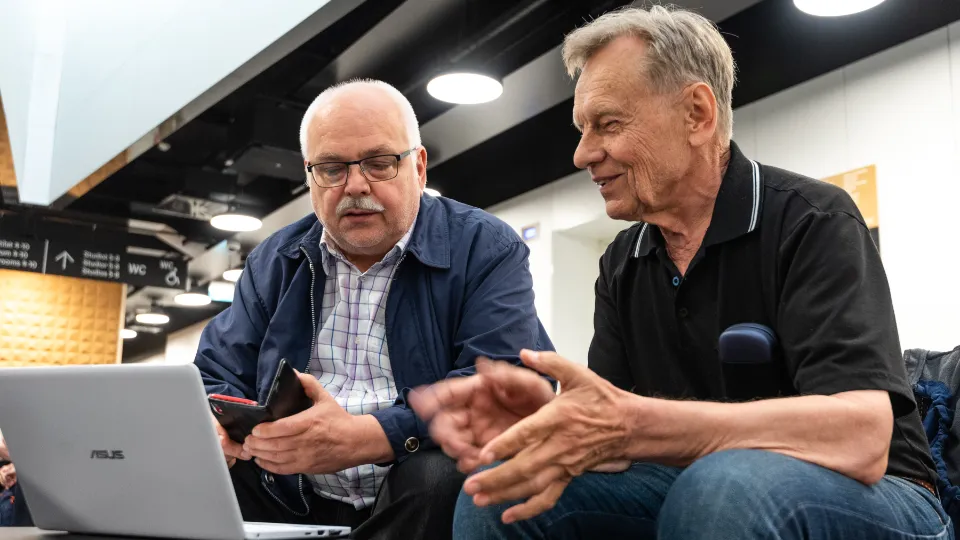Valladolid, Spain on June 27-28, The Nordic Network for Adult Learning (NVL) participated in the European Basic Skills Network (EBSN) annual conference, focusing on ‘Upskilling and Reskilling for the Twin Transition: Digital and Green Transformation’. This year’s theme highlighted the urgent need for developing essential skills to navigate the rapid advancements in technology and environmental sustainability. NVL contributed to the agenda by presenting their innovative Digital Toolkit as well as recent initiates from the Nordic countries regarding basic skills.
Upskilling and Reskilling for the Twin Transition: Digital and Green Transformation
This year’s conference was hosted by the University of Valladolid, Faculty of Education & Social Work. It brought together policymakers, researchers, educators, and practitioners from across Europe to address pressing issues and share insights on the role of adult basic skills in the ‘Twin Transition: Digital and Green Transformation’. NVL participated and introduced their digital toolkit designed to break down barriers in digital literacy.
Showcasing NVL’s Digital Toolkit – addressing barriers to digital literacy
NVL’s newly developed digital toolkit is a resource aimed at identifying and addressing specific obstacles that prevent citizens from effectively utilizing IT solutions. The toolkit is a significant step towards enhancing digital literacy, an essential skill in today’s increasingly digital world.
Designed to facilitate conversations between educators and citizens, the toolkit helps to pinpoint the exact challenges individuals face when navigating the digital landscape.
“This personalized approach allows for tailored support, making digital tools more accessible and less intimidating for users and recognizes that barriers to digital literacy are not solely technical but often psychological and social”, NVL representative Emil Schriver pointed out during his presentation.
“These barriers can include a lack of confidence, fear of making mistakes, and limited prior exposure to digital environments – NVL’s digital toolkit helps promoting not only digital skills development, but also social inclusion”, Schriver says.
As citizens become more comfortable and proficient with digital tools, they can better participate in the digital economy, access online services, and connect with broader social networks.
A good starting point
In an interview with Alex Stevenson, Deputy Director of the Learning and Work Institute, UK, and member of the EBSN executive committee, Stevenson likewise highlights the pressing challenges regarding basic skills that adults face today.
“The key challenge is to help adults understand how they could benefit from improving their essential skills”, Stevenson notes.
Stevenson emphasizes that many adults face daily barriers, from accessing vital public services to managing their day-to-day affairs, through finding employment and progressing in their careers. Common to these activities is that they increasingly require good digital skills alongside literacy skills.
“Adults may feel frustrated that these things are harder to do or feel these things are ‘not for them’ – but often they don’t see how improving their skills could help. Until, of course, they try!” Stevenson says, highlighting the importance of engaging and motivating people into improving their basic skills.
For the same reason Stevenson welcomes the toolkit’s potential impact and relevance.
“The NVL Digital Toolkit is well-conceived, as it addresses both the topical nature of digital skills and the practical use by intermediaries,” Stevenson says and points out that perhaps there is less stigma associated with gaining digital skills compared to literacy skills making the toolkit a good starting point for engaging adults about their skills needs.
“Secondly, the focus on use by intermediaries is also very encouraging. Our work in the UK has shown the potential for such a tool to be used in a range of public services contexts, from job centres, libraries, health services and social housing, to identify people who might benefit from improving their skills”
Flexibility is exactly one of the ideas behind the development of the digital toolkit. Being both flexible and user-friendly, the toolkit is designed to be used in many different contexts and situations.
How does the toolkit work?
The purpose of the tool is to facilitate conversations between citizens who are facing digital challenges and the professionals who meet them on an everyday basis. Through guided conversations, the toolkit helps citizens articulate their difficulties, whether they stem from unfamiliarity with digital terminology, discomfort with new technologies, or other underlying issues. This process is crucial in empowering individuals to overcome their fears and build the confidence needed to navigate the digital world effectively. The tool is freely available in seven languages.
One-size does not fit all
Cäcilia Märki who works for the Swiss Federation of Adult Learning (SVEB) and is a member of the EBSN executive committee, notes that it tends to be a given for professionals and educators that everybody ‘wants to learn’. In reality, this is not necessarily the case.
Talking about basic skills and the NVL Digital Toolkit, she states that, ‘It is not about target groups – it is about individuals” a point that was central at the conference. She elaborates by highlighting that there can be various reasons for people not participating in learning initiatives, but often it is a case of ‘little expected benefit” from the point of view of the potential learner.
‘One of the biggest challenges is to reach people with the right offers.’ Märki states, therefore, she points out that, “We have to be where the people are” meant both in a literal and figurative sense, as she notes, “Basic skills are about full lives, what do people want to do? and what do they need to do? – what competences are needed for the individual?”
As such, Märki acknowledges the toolkit’s ideal of the problem not being about target groups having specific problems. It is rather about identifying individual barriers that prevent the individual from becoming digital or taking the relevant next steps. – One-size does not fit all.
Creating more inclusive learning environments
Aligning with the broader purpose of the EBSN conference, NVL’s Digital Toolkit emphasizes the importance of community learning and the need for inclusive strategies to improve basic skills among adults. By providing a tool that addresses digital literacy barriers at an individual level, it is NVL’s wish to contribute to the creation of more inclusive learning environments.
In line with this goal, the much-anticipated PIAAC data, as well as the national reports from the OECD, will be published on December 10. Learning environments all over Europe and the Nordic PIAAC network are expecting the data to provide new information for practitioners and decision makers on what to focus on and prioritise concerning adult basic skills learning provision.
Read more about the PIAAC network here: PIAAC Network
Find the Digital Toolkit here: NVL Digital Toolkit – English
Read more about the importance of visuals in digital learning in this article published by the European Lifelong Learning Magazine.




